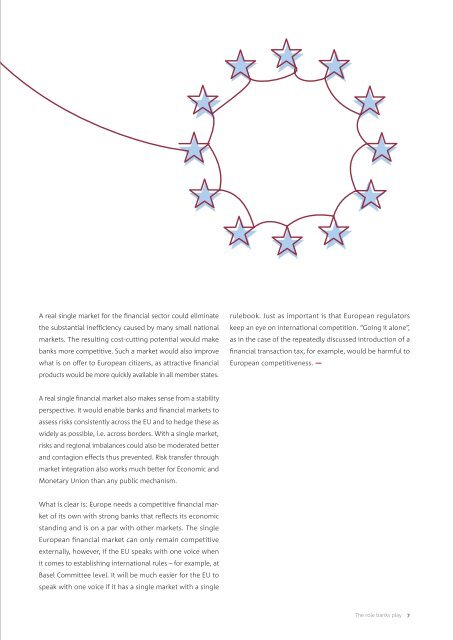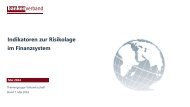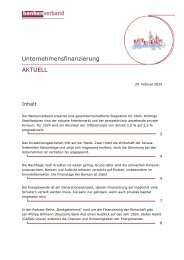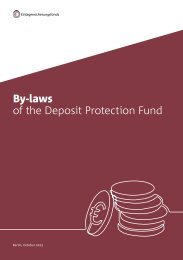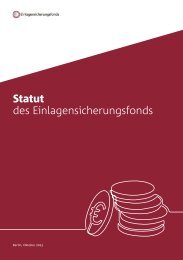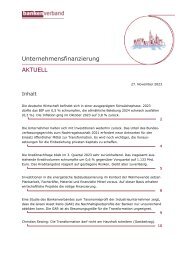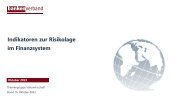Moving Europe forward - a strong single market for citizens, businesses and banks
Europe is our home market – both economically and politically. In the next legislative term we need more and a better Europe, not a relapse into walled-off national markets. Despite all its internal diversity, Europe must demonstrate political unity externally and underline its global commitment to open markets with agreed rules through economic strength.
Europe is our home market – both economically and politically. In the next legislative term we need more and a better Europe, not a relapse into walled-off national markets. Despite all its internal diversity, Europe must demonstrate political unity externally and underline its global commitment to open markets with agreed rules through economic strength.
Create successful ePaper yourself
Turn your PDF publications into a flip-book with our unique Google optimized e-Paper software.
A real <strong>single</strong> <strong>market</strong> <strong>for</strong> the financial sector could eliminate<br />
the substantial inefficiency caused by many small national<br />
<strong>market</strong>s. The resulting cost-cutting potential would make<br />
<strong>banks</strong> more competitive. Such a <strong>market</strong> would also improve<br />
what is on offer to <<strong>strong</strong>>Europe</<strong>strong</strong>>an <strong>citizens</strong>, as attractive financial<br />
products would be more quickly available in all member states.<br />
rulebook. Just as important is that <<strong>strong</strong>>Europe</<strong>strong</strong>>an regulators<br />
keep an eye on international competition. “Going it alone”,<br />
as in the case of the repeatedly discussed introduction of a<br />
financial transaction tax, <strong>for</strong> example, would be harmful to<br />
<<strong>strong</strong>>Europe</<strong>strong</strong>>an competitiveness. —<br />
A real <strong>single</strong> financial <strong>market</strong> also makes sense from a stability<br />
perspective. It would enable <strong>banks</strong> <strong>and</strong> financial <strong>market</strong>s to<br />
assess risks consistently across the EU <strong>and</strong> to hedge these as<br />
widely as possible, i.e. across borders. With a <strong>single</strong> <strong>market</strong>,<br />
risks <strong>and</strong> regional imbalances could also be moderated better<br />
<strong>and</strong> contagion effects thus prevented. Risk transfer through<br />
<strong>market</strong> integration also works much better <strong>for</strong> Economic <strong>and</strong><br />
Monetary Union than any public mechanism.<br />
What is clear is: <<strong>strong</strong>>Europe</<strong>strong</strong>> needs a competitive financial <strong>market</strong><br />
of its own with <strong>strong</strong> <strong>banks</strong> that reflects its economic<br />
st<strong>and</strong>ing <strong>and</strong> is on a par with other <strong>market</strong>s. The <strong>single</strong><br />
<<strong>strong</strong>>Europe</<strong>strong</strong>>an financial <strong>market</strong> can only remain competitive<br />
externally, however, if the EU speaks with one voice when<br />
it comes to establishing international rules – <strong>for</strong> example, at<br />
Basel Committee level. It will be much easier <strong>for</strong> the EU to<br />
speak with one voice if it has a <strong>single</strong> <strong>market</strong> with a <strong>single</strong><br />
The role <strong>banks</strong> play 7


